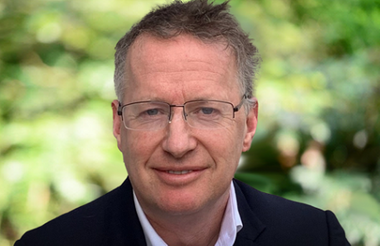The Charity Commission may intervene if trustees demonstrate “personal squeamishness” around sources of philanthropic funding, its chair said at an event today.
Orlando Fraser said at the University of Kent today that the UK has a challenge which “relates specifically to the top 1% of earners and owners in the UK who, the evidence suggests, at this time in our history are not pulling their charitable weight”, with “giving among the very wealthy is apparently declining in value relative to their income”.
“Those on average incomes cannot be expected to shoulder the burden” of difficult economic times, it reads, and “government alone to make up the shortfall over the next few years”.
Fraser said the law “generally expects charities to accept monies where they are available, in order to deliver on their purposes for the public benefit, and not to refuse or return them without very good reason”.
He said that “given the financial detriment to a charity from refusing or returning a donation, the counterweighing reasons justifying the refusal or return will need to be significant”.
“Such reasons will of course sometimes exist” he was due to say, and the regulator will “largely speaking” respect the trustees’ exercise of their discretion.
The speech reads that the Commission “will rarely intervene when trustees decide to accept, refuse or return a donation” but “rarely is not never”.
“The Commission may well intervene if we consider that such intervention would be consistent with our risk and regulatory framework, including if any decision-making is materially irrational,” he said.
“One example of materially irrational decision-making would be when it is apparent that the motivations for a return or refusal are simply the personal worldviews or preferences of the relevant trustees, rather than the best interests of the charity.”
Fraser said that “demonstrative personal squeamishness” around sources of philanthropic funding “may benefit the sense of righteous progressiveness of a trustee or charity executive, but it will most likely not serve the beneficiary reliant on the services a charity provides”.
“Such attitudes harm not just the beneficiaries of the individual charity, but risk undermining charitable giving by high-net-worth individuals overall,” he said.
“Remember, the immediate alternative to high-net-worth individuals giving generously to charity, is high-net-worth individuals not giving generously to charity, and keeping their wealth to themselves and their families. If you care about the distribution of wealth, encourage those with wealth to distribute it a little more vigorously.”
The Commission’s upcoming guidance “will compel trustees to think more carefully about returning or refusing donations” and “we will not move the dial by shaming those who have been fortunate in life”.
Commission to promote philanthropic data
Fraser said philanthropic giving offers many additional benefits for charities, as it can facilitate innovation and philanthropic gifts often come with fewer strings attached.
“I see a crucial role for larger-scale donations from philanthropists in helping to underwrite operating costs, allowing for monies raised through public fundraising to be prioritised for front-line service delivery,” and“in an age of rising inequalities, I worry that the trend of declining social responsibility among the very wealthy may seriously undermine, over time, the sense of social cohesion, of community and togetherness.”
He said the regulator has a lot of data which is “a potential goldmine for donors” but is not yet easily accessible and manageable by high-net-worth donors or their advisers.
“I want us to change that. We are therefore developing a programme to better promote our data on charity funding and impact, which can help philanthropists choose who to give to or see how their money is achieving impact, and which will provide better, concrete data on how philanthropic sources collectively are giving to the sector.”
Related Articles












